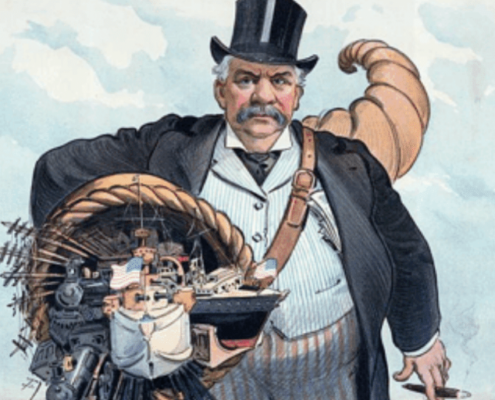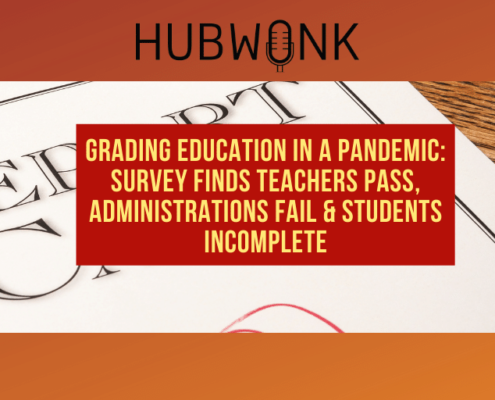
MBTAAnalysis: A look inside the MBTA
0 Comments
/
The MBTA shuttles over a million passengers a day around Greater…
 https://pioneerinstitute.org/wp-content/uploads/CloseupClock-1.jpg
739
1244
Mary Connaughton
https://pioneerinstitute.org/wp-content/uploads/logo_440x96.png
Mary Connaughton2017-02-20 12:34:192017-02-21 09:47:58The Clock is Ticking…….
https://pioneerinstitute.org/wp-content/uploads/CloseupClock-1.jpg
739
1244
Mary Connaughton
https://pioneerinstitute.org/wp-content/uploads/logo_440x96.png
Mary Connaughton2017-02-20 12:34:192017-02-21 09:47:58The Clock is Ticking…….
BU’s Dr. Farouk El-Baz on NASA’s Moon Landing, Remote Sensing, & STEM
This week on “The Learning Curve," Gerard and Cara talk with Dr. Farouk El-Baz, retired research professor and director of the Center for Remote Sensing at Boston University. They discuss his remarkable, varied, and pioneering career in the sciences, surveying both the heavens and the Earth, and key teachers and scientists who have influenced him. Dr. El-Baz shares what it was like serving as supervisor of Lunar Science Planning for NASA's Apollo program, and working on the world-changing project of putting a human on the Moon.

Neptune’s Domain – Oceans, Seas, & Their Creatures- 25 Resources for K-12 Students
Since water is all around us and in us, students should know more about the major bodies of water that shape our planet and our lives, including: what we eat, how we travel, our trade, our wars, and the many fascinating creatures who live in the oceans and seas. In fact, scientists estimate that 91 percent of ocean species remain unclassified, and over eighty percent of our ocean is unmapped and unexplored. We clearly have more work ahead of us to better understand the water that covers most of our world. To assist in this aquatic discovering, mapping, and exploring, we’re offering a variety of resources to help parents, teachers, and K-12 students.

A Republic of Laws – The U.S. Supreme Court – 40 Resources for High School Students
In Pioneer’s ongoing series of blogs on curricular resources for parents, families, and teachers during COVID-19, this one focuses on: Celebrating the U.S. Supreme Court.

“The Road to the Stars” – U.S. Space Exploration – 25 Resources for K-12 Students
In Pioneer’s ongoing series of blogs on curricular resources for parents, families, and teachers during COVID-19, this one focuses on: Celebrating U.S. Space Exploration.

Heritage Foundation’s Jonathan Butcher on Edu Federalism, School Choice, Learning Pods
This week on “The Learning Curve," Gerard and Cara talk with Jonathan Butcher, the Will Skillman Fellow in Education at The Heritage Foundation. They discuss the growing popularity of learning pods, an education innovation propelled by K-12 public education’s failure to meet the COVID-19 moment. With as many as three million children enrolled in learning pods, 35 percent of parents participating in them, and another 18 percent interested in joining one, Butcher shares findings from his report on the role of pods in expanding parent-driven educational choice options.

“The Business of America is Business” – 25 Resources for High School Students
In Pioneer’s ongoing series of blogs on curricular resources for parents, families, and teachers during COVID-19, this one focuses on: Celebrating American Free-Market Capitalism.

Georgetown’s Dr. Marguerite Roza on K-12 School Finance, Spending, & Results
This week on “The Learning Curve," Gerard and Cara talk with Dr. Marguerite Roza, Research Professor and Director of the Edunomics Lab at Georgetown University. Professor Roza describes the three distinct phases of how American K-12 education has been funded over the last 40 years, and implications for equity and overall student achievement.

“Be Strong, Saith My Heart” – National Poetry Month – 40 Resources for K-12 Students
In Pioneer’s ongoing series of blogs on curricular resources for parents, families, and teachers during COVID-19, this one focuses on: Celebrating National Poetry Month.

Stanford’s National Humanities Medal Winner Prof. Arnold Rampersad on Langston Hughes & Ralph Ellison
This week on “The Learning Curve," Gerard and Cara talk with Professor Arnold Rampersad, the Sara Hart Kimball Professor Emeritus in Humanities at Stanford University and recipient of the National Humanities Medal for his books including The Life of Langston Hughes and Ralph Ellison: A Biography.

The Washington Post’s Jay Mathews on An Optimist’s Guide to American Public Education
This week on “The Learning Curve," Gerard and Cara talk with Jay Mathews, an education columnist for The Washington Post and author of the recent book, An Optimist's Guide to American Public Education. Jay describes the three key trends in K-12 schooling that he views as cause for hope.

Grading Education in a Pandemic: Survey Finds Teachers Pass, Administrations Fail & Students Incomplete
This week on Hubwonk, Joe Selvaggi discusses a recently released survey from Pioneer Institute and Emerson Polling, "Massachusetts Residents’ Perceptions of K-12 Education During the Covid-19 Pandemic," with Emerson's lead analyst, Isabel Holloway, and Pioneer Institute’s Charlie Chieppo.

Poll Finds Mixed Views About Schools’ Pandemic Performance
A year into the COVID-19 pandemic, Massachusetts residents have mixed opinions about how K-12 education has functioned, but they tend to view the performance of individual teachers more favorably than that of institutions like school districts and teachers’ unions, according to a poll of 1,500 residents commissioned by Pioneer Institute.

Dartmouth’s Prof. Susannah Heschel Discusses Rabbi Abraham Joshua Heschel & the Civil Rights Movement
This week on “The Learning Curve," Gerard and Cara talk with Dr. Susannah Heschel, the Eli M. Black Distinguished Professor of Jewish Studies at Dartmouth College, and the daughter of noted 20th-century Jewish theologian and Civil Rights-era leader, Rabbi Abraham Joshua Heschel. They discuss what teachers and students today should know about Rabbi Heschel’s life and legacy.

Hoover Institution’s Dr. Eric Hanushek on COVID-19, K-12 Learning Loss, & Economic Impact
This week on “The Learning Curve," Gerard and Cara talk with Dr. Eric Hanushek, the Paul and Jean Hanna Senior Fellow at Stanford University’s Hoover Institution. They discuss his research, cited by The Wall Street Journal, on learning loss due to the pandemic, especially among poor, minority, and rural students, and its impact on skills and earnings.

UK Classics Scholar Kathryn Tempest on Cicero, Brutus, & the Death of Caesar
This week on “The Learning Curve," Gerard and Cara talk with Dr. Kathryn Tempest, a Reader in Classics and Ancient History at the University of Roehampton in London, UK, and author of Cicero: Politics and Persuasion in Ancient Rome and Brutus: The Noble Conspirator. They discuss the historical, civic, and moral lessons political leaders, educators, and schoolchildren today can learn by studying the Roman Republic and the lives of key figures from that era such as Cicero and Brutus.

Best-Selling, Netflix Author Loung Ung On Surviving Pol Pot’s Killing Fields
This week on “The Learning Curve," Gerard and Cara talk with Loung Ung, a human-rights activist; the author of the bestselling books First They Killed My Father: A Daughter of Cambodia Remembers, Lucky Child, and Lulu in the Sky; and a co-screenwriter of the 2017 Netflix Original Movie, First They Killed My Father. Ms. Ung shares her experiences living through genocide under Pol Pot and the Khmer Rouge from 1975 to 1979, which resulted in the deaths of nearly a quarter of Cambodia's population.

American Federation for Children’s Tommy Schultz on School Choice & Edu Federalism
This week on “The Learning Curve," Gerard and Cara talk with Tommy Schultz, CEO-elect of the American Federation for Children (AFC). They discuss how COVID-19 school closures have increased the interest in alternatives to public schools, and what AFC's polling shows on shifts in attitudes toward school choice options in both urban and rural communities.

Key Madison Park Program Lags Other State Voc-Techs, but Shows Signs of Improvement
The co-operative education program at Boston’s Madison Park Technical Vocational High School, which places students in paid positions with local employers, lags far behind other Massachusetts vocational-technical schools in terms of both placements and number of employer contacts. But with the school as a whole beginning to improve after years of turmoil, the co-op is also showing promising signs, according to a new study published by Pioneer Institute.

Ayaan Hirsi Ali, International Best-Selling Author & Human Rights Activist
This week on “The Learning Curve," Gerard and Cara talk with Ayaan Hirsi Ali, a Research Fellow at the Hoover Institution, founder of the AHA Foundation, and author of the books Prey: Immigration, Islam, and the Erosion of Women's Rights, Infidel: My Life, and Nomad: From Islam to America - A Personal Journey Through the Clash of Civilizations.

WSJ Drama Editor Terry Teachout on Jazz Greats Louis Armstrong & Duke Ellington
This week on “The Learning Curve," Gerard and guest co-host Kerry McDonald continue our celebration of Black achievements with Terry Teachout, drama critic at The Wall Street Journal, and author of such books as Pops: A Life of Louis Armstrong and Duke: A Life of Duke Ellington.

UGA Prof. Valerie Boyd on Zora Neale Hurston, the Harlem Renaissance, & Black History Month
This week on “The Learning Curve," Cara and Gerard celebrate Black History Month with Professor Valerie Boyd, the Charlayne Hunter-Gault Distinguished Writer in Residence and Associate Professor of Journalism at the University of Georgia, and the definitive biographer of Zora Neale Hurston. Boyd discusses why Hurston is such an important novelist and cultural figure, and the influence of Hurston’s 1937 classic novel, Their Eyes Were Watching God, on American literature.

Boston Catholic Schools Supt. Tom Carroll on National Catholic Schools Week
This week on “The Learning Curve," Cara and Gerard celebrate National Catholic Schools Week with Tom Carroll, superintendent of schools for the Archdiocese of Boston. He shares his view of the value that Catholic schools add; the reasons for their success at improving student outcomes and creating a sense of community; and their commitment to serving children from underprivileged backgrounds, regardless of religious affiliation.

Never Forgetting – Holocaust Remembrance Day – 25 Resources for K-12 Students
In Pioneer’s ongoing series of blogs here, on curricular resources for parents, families, and teachers during COVID-19, this one focuses on: Memorializing International Holocaust Remembrance Day on January 27th and learning about the tragedy of the Holocaust during WWII.

AZ Supreme Court Justice Clint Bolick on National School Choice Week
This week on “The Learning Curve," Cara and Gerard kick off National School Choice Week with Arizona Supreme Court Justice Clint Bolick, co-author with Kate Hardiman of a new book, Unshackled: Freeing America’s K–12 Education System. Justice Bolick shares his experiences serving on a state supreme court, and how it has shaped his understanding of America’s legal system.

Pulitzer Winner Taylor Branch on MLK, Civil Rights History, & Race in America
This week on “The Learning Curve," Cara and Gerard are joined by Taylor Branch, Pulitzer Prize-winning author of a landmark trilogy on the Civil Rights era, America in the King Years. They discuss the life and legacy of the Rev. Dr. Martin Luther King, whose birthday the nation observed on Monday. They review Dr. King’s powerful, moving oratory, drawing on spiritual and civic ideals to promote nonviolent protest against racial injustice, and how, as head of the Southern Christian Leadership Conference, he shared leadership of the movement with organizations such as the Student Nonviolent Coordinating Committee.

Eva Moskowitz of Success Academy on Charter Schools, Achievement Gaps, & COVID-19 Learning Loss
This week on “The Learning Curve," Cara and Gerard kick off the new year with Eva Moskowitz, CEO & Founder of Success Academy Charter Schools, a network of 47 schools enrolling 20,000 K-12 students in New York City. Eva shares her own education path, and how it influences her leadership and philosophy.

USED Asst. Sec. Jim Blew Talks Sec. DeVos, School Choice, & K-12 Politics
This week on “The Learning Curve,” Cara and Gerard are joined by Jim Blew, the assistant secretary for planning, evaluation, and policy development at the U.S. Department of Education. Assistant Secretary Blew shares lessons from leading and implementing K-12 public education reform efforts in often contentious policy environments, and the unique challenges of the current partisanship and gridlock in Washington, D.C.

Oxford & UCLA Pulitzer Winner Prof. Daniel Walker Howe on Horace Mann, Common Schools, & Educating for Democracy
This week on “The Learning Curve,” Cara and Gerard are joined by Daniel Walker Howe, Rhodes Professor of American History Emeritus at Oxford University in England and Professor of History Emeritus at UCLA. Drawing from his Pulitzer Prize-winning book, What Hath God Wrought: The Transformation of America, 1815-1848, he provides background information on Horace Mann, the first secretary of the Massachusetts State Board of Education, founder of the common school movement in public education, and a prominent abolitionist in Congress.

Knowledge is Power: Sir Francis Bacon and the Scientific Method – 10 Resources for High School Students
In Pioneer’s ongoing series of blogs here, on curricular resources for parents, families, and teachers during COVID-19, this one focuses on: Celebrating the 400th Anniversary of Sir Francis Bacon and the scientific method.

Stanford’s Prof. Caroline Hoxby on Charter Schools, K-12 Ed Reform, & Global Competitiveness
This week on “The Learning Curve,” Cara and Gerard are joined by Caroline Hoxby, the Scott and Donya Bommer Professor of Economics at Stanford University and a Senior Fellow of the Hoover Institution.
